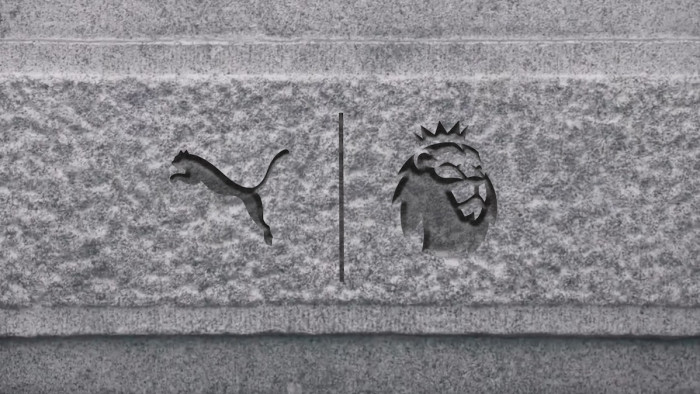The story of the forefathers of English football wiped out in the First World War - and the Brazilian team they inspired
These masters of the beautiful game made the ultimate sacrifice - but their influence lives on


When we think about wartime football, the image which comes up most frequently is the game played in No Man’s Land during an impromptu ceasefire in 1914.
That match has gone down in history as evidence of football’s power to rise above it all and act as a unifying force. But there’s another football story from World War I which doesn’t get the same amount of attention.
It involves a group of footballers from London, a trip cut short by the outbreak of conflict, and a squad decimated on battlefields in Europe, four short years after popularising football in Brazil long before the likes of Pelé, Garrincha or Jairzinho were even born.

Soldiers in Ypres, 5th October 1917
At the start of the 20th century, football was relatively well-established in the United Kingdom, but was still in its infancy in Brazil. However, thanks in part to the influence of British enthusiasts, the sport grew in São Paulo with the establishment of a number of clubs, one inspired by a touring side from London.
Corinthian FC was founded in the late 19th century as a vehicle for the best English players to come together at club level, with the end goal of strengthening the England international team. Alumni include plenty of early England internationals, including multi-spot athletes such as first class cricketer C.B. Fry and Wimbledon champion Max Woosnam, and despite their amateur status they regularly defeated professional sides and even made up the entire England starting XI in 1894.
They spread their wings, taking football across the world, and when they sent a squad out to South America in 1910 they made enough of an impact on five railway workers in São Paulo that the quintet were inspired to create a club of their own, adding the letter S to the official name. However, while Corinthians SC live on today as one of the best-supported clubs in South America, the fate of their namesakes changed drastically just four years later.
A follow-up tour had been planned for 1914, only for war to get in the way, and many members of the squad went, in a short space of time, from preparing for an exhibition match in Brazil to trench warfare.

A Corinthian-Casuals shirt at a 2015 friendly against Sport Club Corinthians Paulista in Brazil
“I was doing some filming at the ground [Corinthian-Casuals’ home ground in Tolworth, south-west London] and one of the caretakers at the club pointed to this old, tired looking war memorial in the corner of the boardroom,” Chris Watney, filmmaker and veteran Corinthian-Casuals striker tells me.
At the time, Watney was putting together a film about the relationship between Corinthians and Corinthian-Casuals, ahead of the Brazilian club opening its new stadium for the 2014 World Cup. However, that film – Brothers in Football – took on a new element following that particular discovery.
“He told me half that team who travelled to Brazil in 1910 then died in the war,” Watney adds.
“Obviously that was around the time the 100 year commemorations were starting, and I thought ‘Oh wow, that’s the story.’”
“We saw a whole generation of Corinthians, these gentlemen who were the greatest players in the world, gunned down on the battlefields in France”
The Brazil tour was part of a series of trips around the globe, beginning when Corinthians travelled to South Africa in 1897 as de facto representatives of English football. Trips to Europe and North America would follow, before they set sail for Brazil a few years after Charles Miller – a British schoolboy who turned out for the club before returning to South America with his expat father – introduced the game to the country.
The club remains an amateur institution to this day, even after a merger with a neighbouring club in the 1930s which saw its name change to Corinthian-Casuals. They are the highest-ranked amateur club in the English football pyramid, playing in the seventh tier after winning promotion in 2017/18, but the crowds of hundreds don’t compare to the packed stadia that witnessed their early games in London and on those overseas tours.

Jamie Byatt with Corinthians fans during a 2015 friendly
“Obviously when some people sign for the club they ask some things about the club and obviously you can explain things like how big they are in Brazil, to do with Corinthians,” explains Jamie Byatt, one of the highest-scoring players in Corinthian-Casuals history.
“You try to tell them what you can, but now you find a lot of people have more understanding of what the club is about and how it started.”
Byatt, a builder by trade, is one of the stars of Brothers in Football and became the first English player to turn out for SC Corinthians Paulista when he represented both sides during a 2015 friendly.
There are fans in Brazil who know more about Corinthian-Casuals than about some bigger English clubs, and some Corinthians fans even embark on pilgrimages to Tolworth to visit the ground.
However, like Manchester United’s ‘Busby Babes’ and the ‘Grande Torino’ side who lost several players in the Superga disaster, Corinthian FC were cut down in their prime.
In the summer of 1914, while at sea on their way to Brazil for a second tour, the squad were informed of war breaking out. There was no question over what they had to do – the squad cancelled the tour and returned home to join the war effort. The majority were officers in the war, having come from a public school background, and were first over the top. Consequently, the club lost more men than any other, and even those who returned home after the war largely did not return to club football.
“We saw a whole generation of Corinthians, these gentlemen who were the greatest players in the world, gunned down on the battlefields in France,” Watney reveals in Brothers in Football, and the war memorial in the clubhouse in Tolworth remains as a tribute to that lost generation.
“Half that team who travelled to Brazil in 1910 then died in the war”
Corinthian-Casuals have maintained a connection with the armed forces well into the 21st century, thanks in no small part to their ‘Schools Team’. Managed by Watney himself, the team of retired footballers travels the country playing against top schools and army and navy teams in an effort to keep the ‘Corinthian spirit’ visible.
Additionally, the Corinthian-Casuals first team took on an army XI to mark the commemorations of the centenary of the First World War.
On Remembrance Sunday, a century on from the end of the conflict, a corner of south west London will be remembering the 22 men who believed some things were more important than football.
Watch Brothers in Football, the next instalment in the award-winning BT Sport Films series, on Saturday 10th November at 9pm on BT Sport 1. For more info visit bt.com/sport
(Images: BT Sport/Getty)
Latest
Related Reviews and Shortlists









